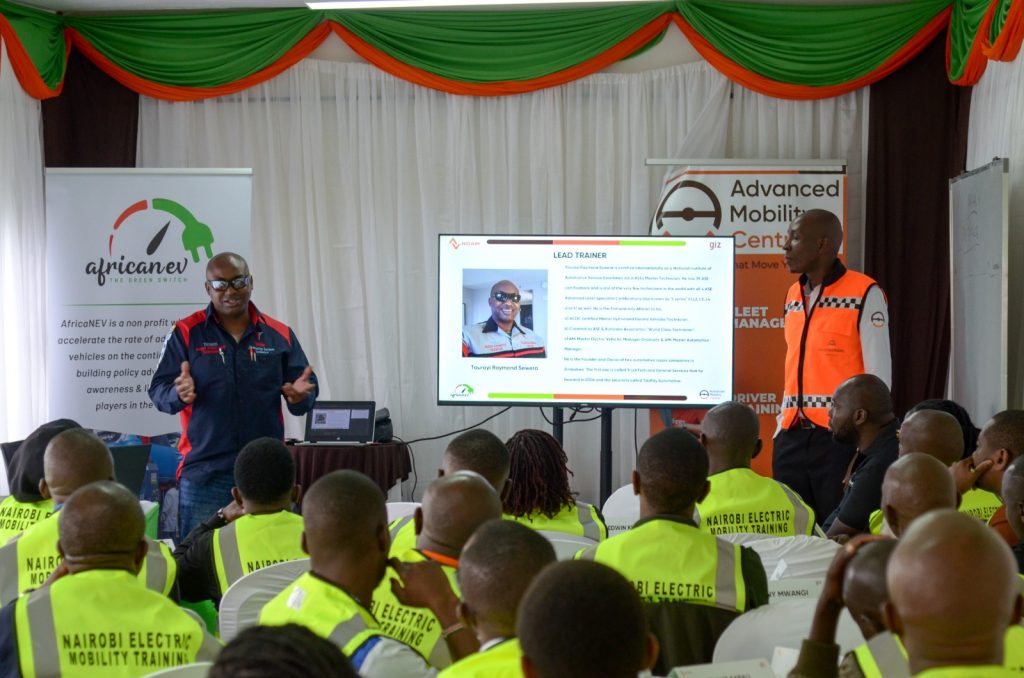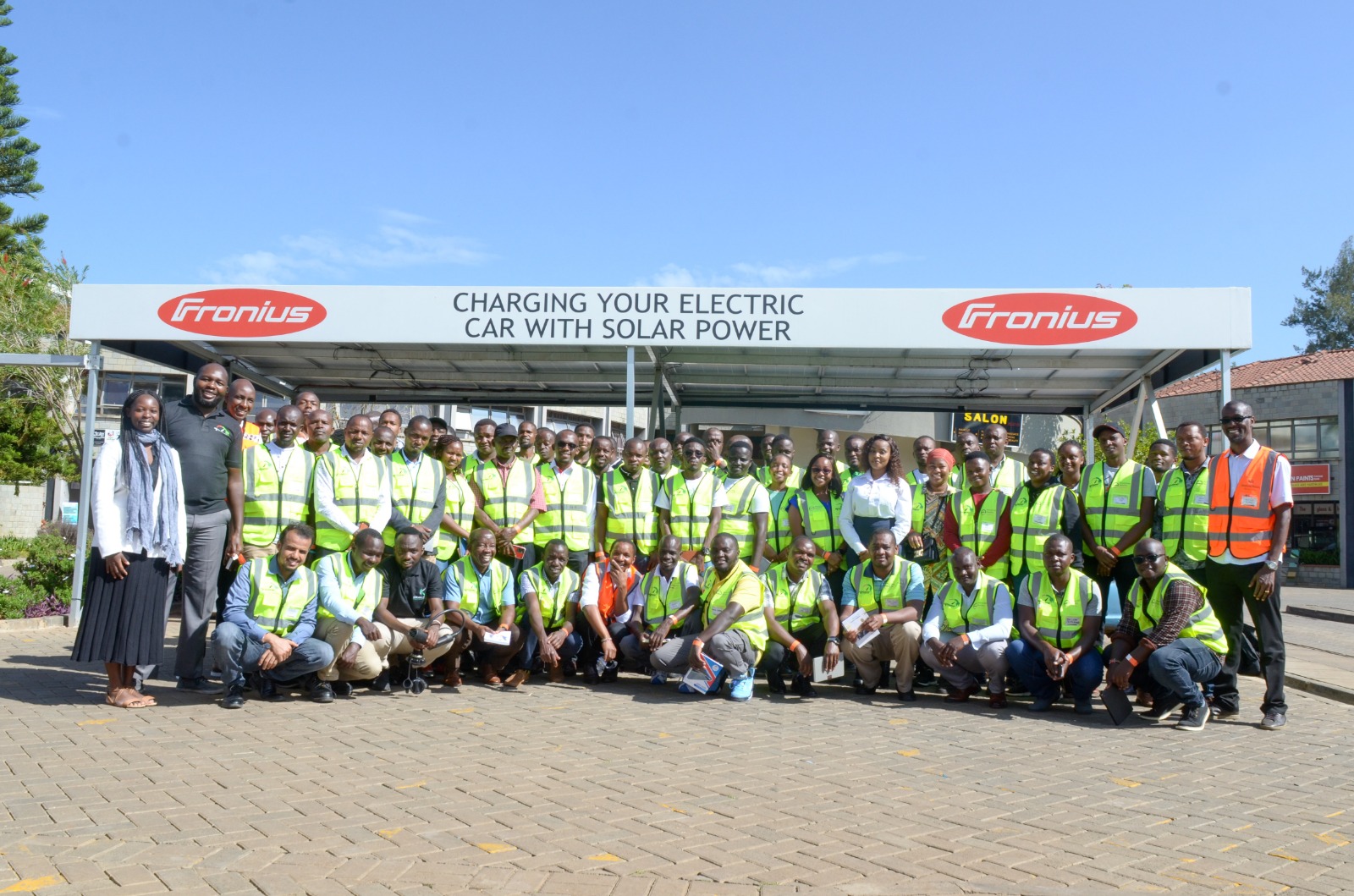Stephen Macharia
Africa New Energy Vehicles (AfricaNEV), in partnership with Advanced Mobility and supported by GIZ Kenya, recently concluded an e-mobility training program in Kenya aimed at enhancing the capacity of local technicians to maintain electric vehicles (EVs). The program marked a significant milestone in knowledge transfer and the promotion of sustainable mobility in Africa.
The training received attention for its potential impact not only in Kenya but also across the continent, highlighting a collaborative effort between the public and private sectors to embrace eco-friendly transportation alternatives. Participants, representing a diverse range of stakeholders including technicians from local EV dealers, Kenya Power, the National Transport and Safety Authority (NTSA), GA Insurance, and Heritage Insurance, showed keen interest in the program, indicating a growing awareness of the importance of sustainable mobility in Kenya’s transportation and energy sectors.
A key feature of the training was its hands-on approach to understanding EV technology. Participants had the opportunity to dismantle and reassemble Nissan Leafs provided by Knights Energy, gaining practical experience that deepened their understanding of EV mechanics and prepared them for future maintenance and repair tasks.
To complement this practical experience, participants also visited prominent E-Mobility companies in the region, including Basigo, EBEE, Ampersand, Powerhive, and Knights Energy. These visits offered a comprehensive view of the diverse approaches within the electric mobility sector, further enriching the participants’ learning experience.

The training featured an impressive lineup of trainers, including Gad Ashiagbor, the founder of AfricaNEV. Ashiagbor expressed optimism about the program’s impact on the continent’s EV landscape, stating, “We are thrilled to have successfully concluded this impactful E-Mobility training program. The hands-on experience, coupled with visits to leading E-Mobility companies, has equipped participants with valuable skills and insights crucial for the development of sustainable electric vehicle practices across Africa.”
The holistic nature of the training, combining theoretical knowledge with practical application, underscores the comprehensive strategy needed to build a robust EV industry in Africa. As AfricaNEV plans to expand similar programs in Kenya and beyond, the recently concluded training in Kenya serves as a testament to the continent’s commitment to embracing clean energy solutions and its potential to become a global leader in sustainable mobility.
Kenya’s progress in the EV sector reflects not only its adaptability to the evolving global landscape but also positions it as a key player in the pursuit of sustainable transportation solutions.
Last year, the Energy and Petroleum Regulatory Authority released guidelines outlining essential factors for designing, installing, and operating electric vehicle (EV) charging points and stations. The guidelines are expected to accelerate the uptake of electric vehicles in Kenya, and promote affordable tariffs for both EV owners and charging station operators.
By June 2023, the country had 2,079 electric vehicles, with a target of reaching five percent of the total registered vehicles by 2025, according to EPRA. Motorcycles make up the majority, with 1,500 units or 72.1 percent of the electric vehicles, followed by 181 station wagons (8.7 percent) and 176 tuk-tuks (8.4 percent). Additionally, there were 20 electric buses on Kenyan roads during this period.
Leading the shift towards clean mobility in public transport are several firms that assemble motorcycles and two-wheelers, including electric mobility startup BasiGo and the Swedish-owned Roam.

A nice initiative. I was wondering who will repair Evs once they are here
Enjoyed looking at this, very good stuff, regards.